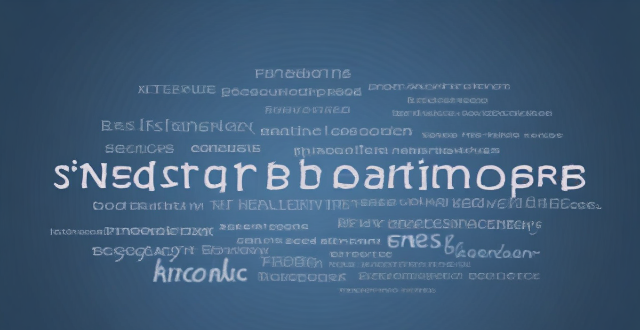The text discusses the interconnected relationship between physical activity, mental health, and peace. Regular physical activity can reduce anxiety and depression, improve mood, and enhance cognitive function, which in turn fosters emotional stability, clear thinking, and empathy - qualities necessary for maintaining peace. Sports and group activities promote teamwork, respect for others, and community building, contributing to peaceful interactions. Therefore, understanding these connections can lead to conscious choices that improve individual lives and contribute to a more peaceful world.

The Relationship between Physical Activity, Mental Health, and Peace
Introduction
The relationship between physical activity, mental health, and peace is multifaceted and interconnected. Each element plays a crucial role in maintaining overall well-being and happiness. Let's delve into the details of this intricate relationship.
Physical Activity and Mental Health
*Benefits of Physical Activity on Mental Health*
- Reduced Anxiety and Depression: Regular physical activity has been shown to reduce symptoms of anxiety and depression.
- Improved Mood: Engaging in physical activities can boost endorphin levels, leading to improved mood and reduced stress.
- Enhanced Cognitive Function: Exercise promotes better brain health and cognitive function.
*How Physical Activity Affects Mental Health*
- Neurochemical Changes: Physical activity stimulates the production of neurotransmitters like serotonin and dopamine, which are associated with mood regulation.
- Stress Reduction: Exercise helps to manage stress by reducing the body's response to stress hormones.
- Improved Sleep: Regular physical activity can lead to better sleep quality, which is essential for mental health.
Mental Health and Peace
*Impact of Mental Health on Peace*
- Emotional Stability: Good mental health contributes to emotional stability, which is necessary for peaceful interactions with others.
- Clear Thinking: Mental well-being allows for clear thinking and decision-making, promoting peaceful resolutions to conflicts.
- Empathy and Compassion: Mental health fosters empathy and compassion, essential qualities for maintaining peace.
*How Mental Health Influences Peace*
- Conflict Resolution: Individuals with good mental health are more likely to handle conflicts peacefully.
- Social Harmony: Mental well-being contributes to positive social relationships and harmony within communities.
- Personal Growth: Mental health supports personal growth, which can lead to a greater understanding of oneself and others, promoting peace.
Physical Activity and Peace
*Role of Physical Activity in Promoting Peace*
- Teamwork and Cooperation: Sports and group activities encourage teamwork and cooperation, building a foundation for peace.
- Respect for Others: Physical activities often involve rules and fair play, teaching respect for others.
- Healthy Outlets for Emotions: Exercise provides healthy outlets for emotions like anger or frustration, preventing them from escalating into violence.
*How Physical Activity Contributes to Peace*
- Community Building: Physical activities can bring people together, creating a sense of community and belonging.
- Conflict Prevention: Engaging in physical activities can prevent conflicts by providing constructive ways to spend time and energy.
- Promoting Tolerance: Sports and other physical activities often involve diverse groups of people, promoting tolerance and understanding among different cultures and backgrounds.
Conclusion
The relationship between physical activity, mental health, and peace is cyclical and mutually beneficial. Engaging in regular physical activity can improve mental health, which in turn fosters peace. Similarly, promoting peace through physical activities can enhance mental well-being. By understanding these connections, individuals can make conscious choices to improve their own lives and contribute to a more peaceful world.